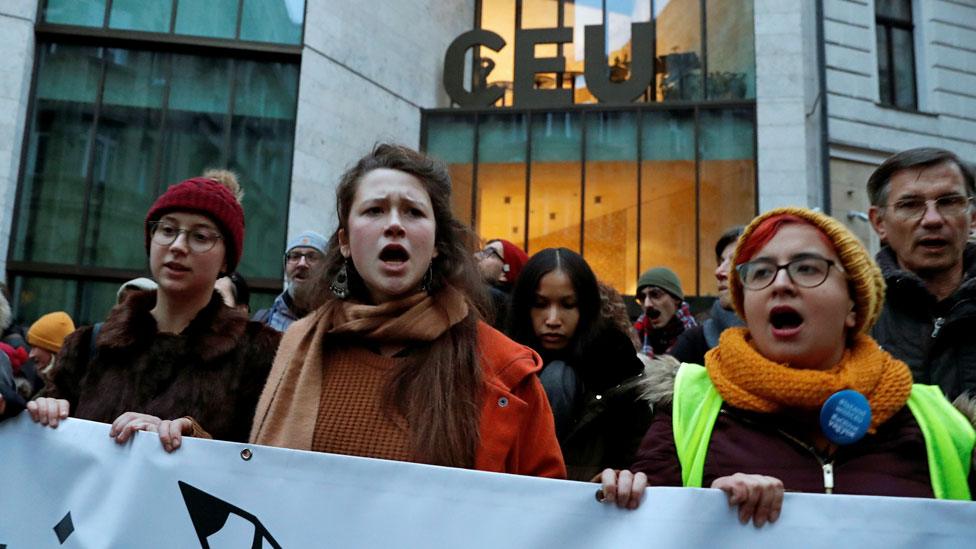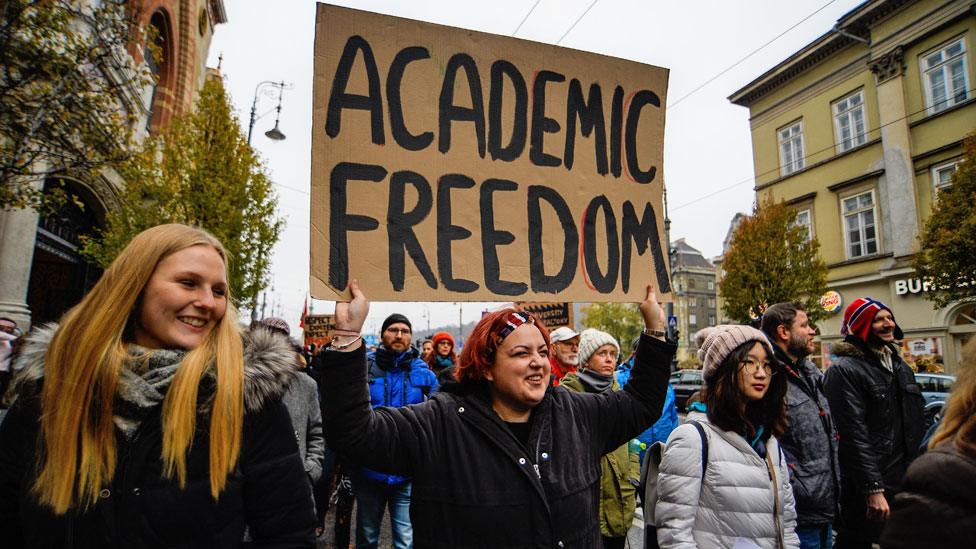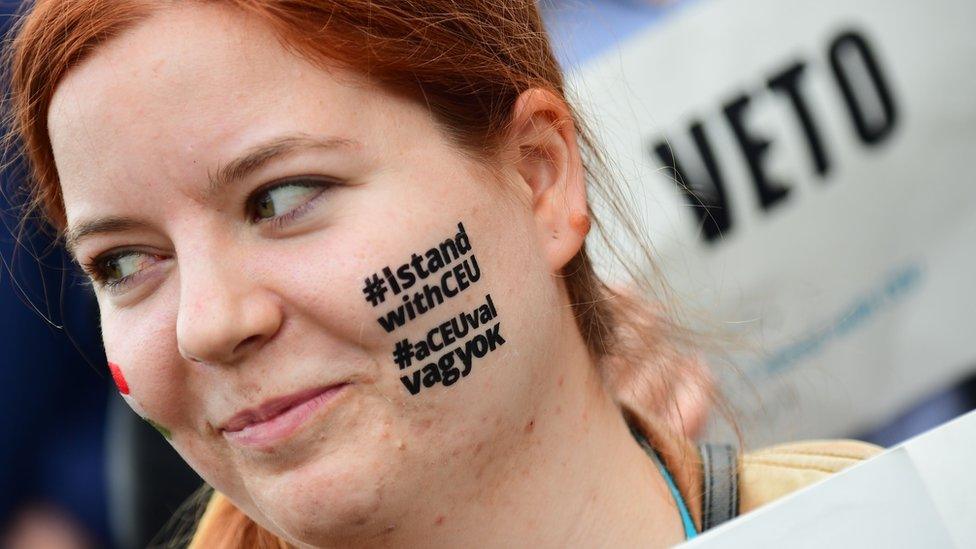University 'forced out' from Budapest
- Published

The university says it faces "expulsion" from Hungary
A university in Hungary now formally accepts that it "has been forced out" from its Budapest base - after a weekend deadline to reach a deal with the government passed without any last-minute agreement.
"We can no longer operate as a free institution in the city and country we call home," said the president of the Central European University (CEU), Michael Ignatieff.
He described it as a "tragic and serious violation of academic freedom in the heart of Europe".
The Hungarian government has rejected claims that it is an issue of academic freedom - arguing that the university has failed to comply with higher education regulations.
The university, founded by liberal philanthropist George Soros to foster democracy in post-Communist Central Europe, is now moving many of its courses to Vienna.
Mr Ignatieff said it was "unprecedented" that a US-accredited university was being "forced out of a Nato ally country".
"A European institution has been summarily ousted from a European Union member nation," he added.
'Europe is disgraced'
Two US senators, speaking on behalf of the US Commission on Security and Cooperation in Europe, issued a statement condemning the departure.
"Although CEU met every condition demanded of it, the Hungarian government was resolved not to take 'Yes' for an answer," said Republican senator Roger Wicker and Democrat senator Ben Cardin.
Guy Verhofstadt, a leading MEP and former Prime Minister of Belgium, tweeted that "Europe is disgraced" by the first forced university closure in a European democracy since World War Two.
The CEU university in Budapest, a graduate school founded in 1991, has been in a long-running dispute with authorities in Hungary.

Protests called for a last-minute change of policy to keep the university in Budapest
To continue recruiting students in Hungary, the university needed to meet new regulations for its status as an institution accredited in both Hungary and the US.
Negotiations in the US more than a year ago seemed to have reached a deal but nothing was signed, which means from the new year the CEU will not be able to admit new students in Hungary.
'Soros university'
In the background, has been a much bigger cultural and political battle.
Much of this has focused on Hungarian-born Mr Soros.

Michael Ignatieff says this strikes at academic freedom "in the heart of Europe"
Mr Soros is the target of attacks from Viktor Orban's nationalist government, accused of being in favour of mass immigration and a globalist who will undermine the country's culture and identity.
The Hungarian government says the fault lies with the university's failure to comply with higher education regulations.
A spokesman has rejected the validity of the weekend "deadline", arguing it was the university's choice to leave.
'Political commotion'
The Hungarian authorities have also criticised warnings about academic freedom - claiming that the university has used this as a smokescreen.
The foreign affairs minister has said the "Soros university" was not "searching for a solution but just wants a political commotion".
The university, in turn, accused Hungary's government of having no intention of signing the deal agreed after US mediation - and wanted the "expulsion" of the university.
The CEU will still keep its university building in Budapest - and students already in Hungary will be able to carry on studying there until they finish their courses.
- Published30 November 2018
- Published3 May 2017
- Published25 October 2018

- Published7 March 2018